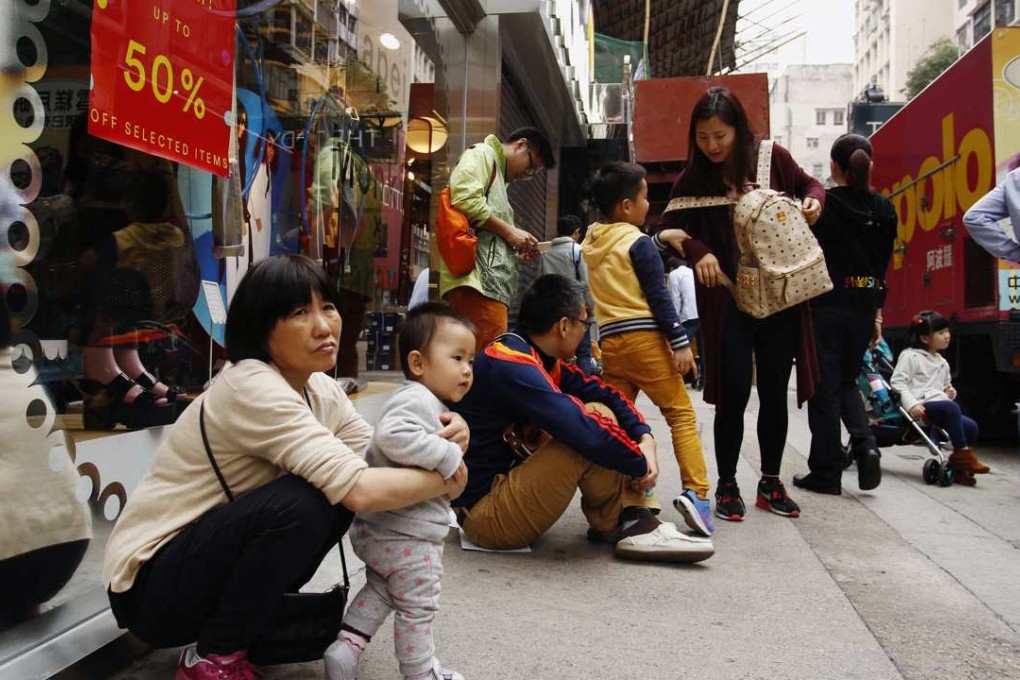Opinion | Understanding of history must teach Hongkongers – and mainlanders – the need for tolerance
Peter Kammerer says it’s only right that migrants and visitors are welcomed in our city, given our own immigrant past and an understanding of the circumstances that have shaped thinking and behaviour on both sides of the border

Age is said to bring wisdom, and my elderly neighbours, he in his 90s, she in her 80s, certainly appear to be well endowed. They don’t understand the hatred of some Hongkongers towards their mainland cousins, especially because they are of the same ethnicity. They fondly recall the 1960s, when so many people were poor, yet seemingly happy, when outsiders were treated with the same welcoming smile as friends. What has changed to cause such disapproval, they wonder?
READ MORE: You are welcome in Hong Kong: that’s the message city should send to mainland migrants
Living in North Point, a part of Hong Kong known for its abundance of mainland migrants and a draw for value-conscious tourists, I am similarly perplexed. Locals are less loud in the way they talk, are not as pushy when getting on a bus and shop less vigorously for pharmaceuticals. They are more in touch with international fashion trends and learned long ago that smoking is bad for their health. But these are not valid reasons to look down on, keep apart from and protest against.
Why then is there a tendency among some Hongkongers to treat mainlanders as being inferior?
Why, then, is there a tendency among some Hongkongers to treat mainlanders as being inferior? My neighbours contend that this was certainly not the case half a century ago, when migrants were making their way to our city to escape the dark days of the Cultural Revolution. Most residents – academics estimate more than 90 per cent – are descendants of refugees who began arriving in waves from the 1930s to escape the Chinese civil war and the Japanese invasion, after the Communist victory over the Kuomintang in 1949 and so on through to 1974, when the introduction of a “touch base” policy heralded the beginning of a clampdown. Until then, although a border fence was put up in 1951 and people landing without permission were technically illegal immigrants, they were tolerated and even welcomed due to a huge demand for factory labour.
READ MORE: A close-minded Hong Kong view of mainland China

It is wrong for Beijing to accuse Hongkongers of having Western rather than Chinese values. History and circumstances, not the people, are to blame
Trading centres like Hong Kong have access to international ideas and influences; the mainland’s closure to the outside world during the Cultural Revolution widened the gap in thinking. The Communist Party’s controls on what Chinese can say and do have shaped values. Hongkongers are prone to having opinions and views and are not shy of criticising authority when they feel it is justified. They want what is best and will work tirelessly to achieve it.
It is wrong for Beijing to accuse Hongkongers of having Western rather than Chinese values. History and circumstances, not the people, are to blame. Hong Kong was stolen at a time when China was weak and its people had no say in whether they wanted to live under colonial rule. Their perspectives are the result of circumstances.
READ MORE: A gentler, kinder Hong Kong will usher in closer ties with mainland China
It will take time for both sides to properly know and understand one another. That comes from interaction and living together and requires tolerance and a willingness to learn. It is the same for the mainland towards Hong Kong, as Hong Kong towards the mainland. Migrants and visitors should therefore be treated as they once were: with a welcoming smile and friendship.
Peter Kammerer is a senior writer at the Post
